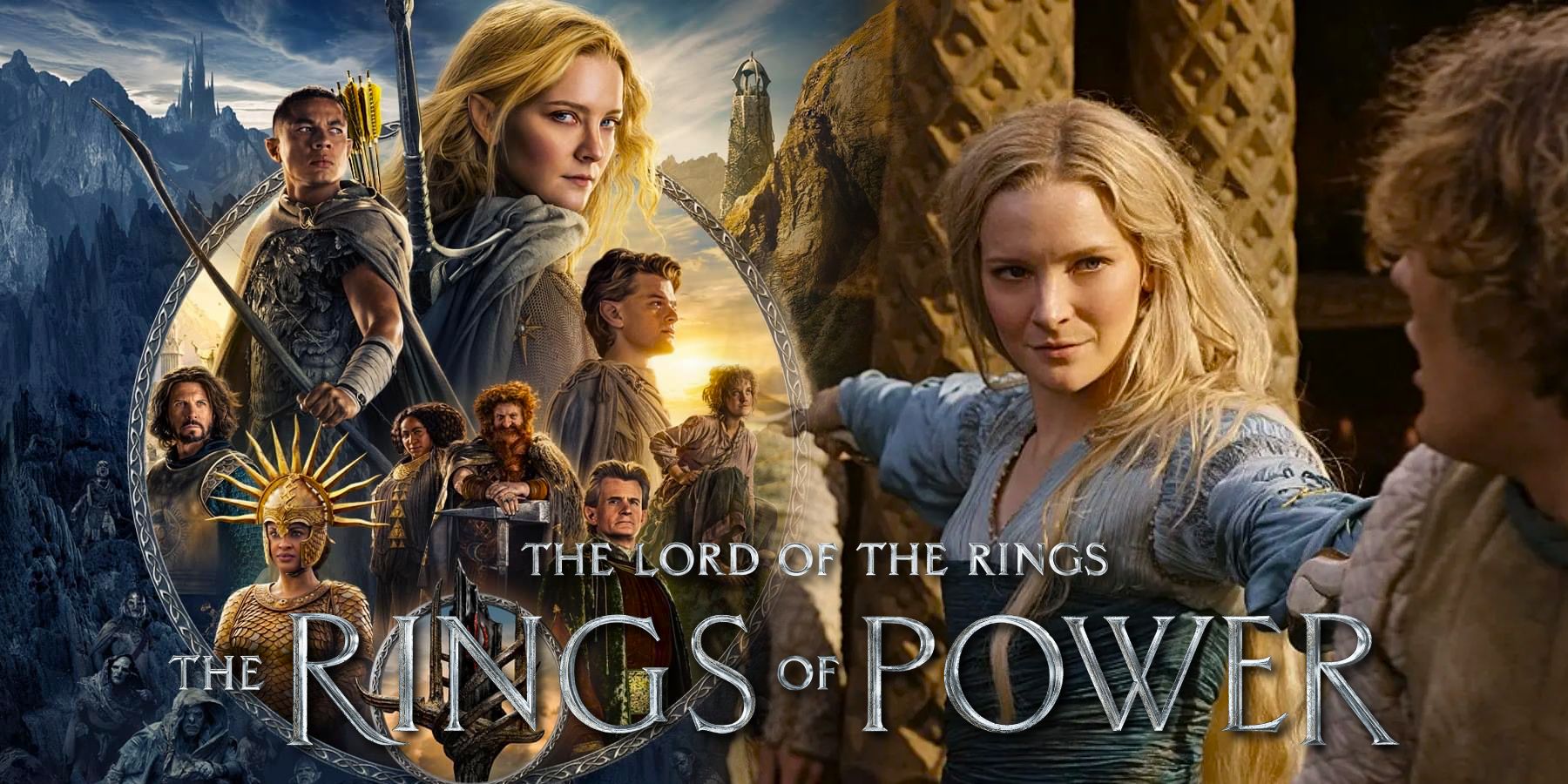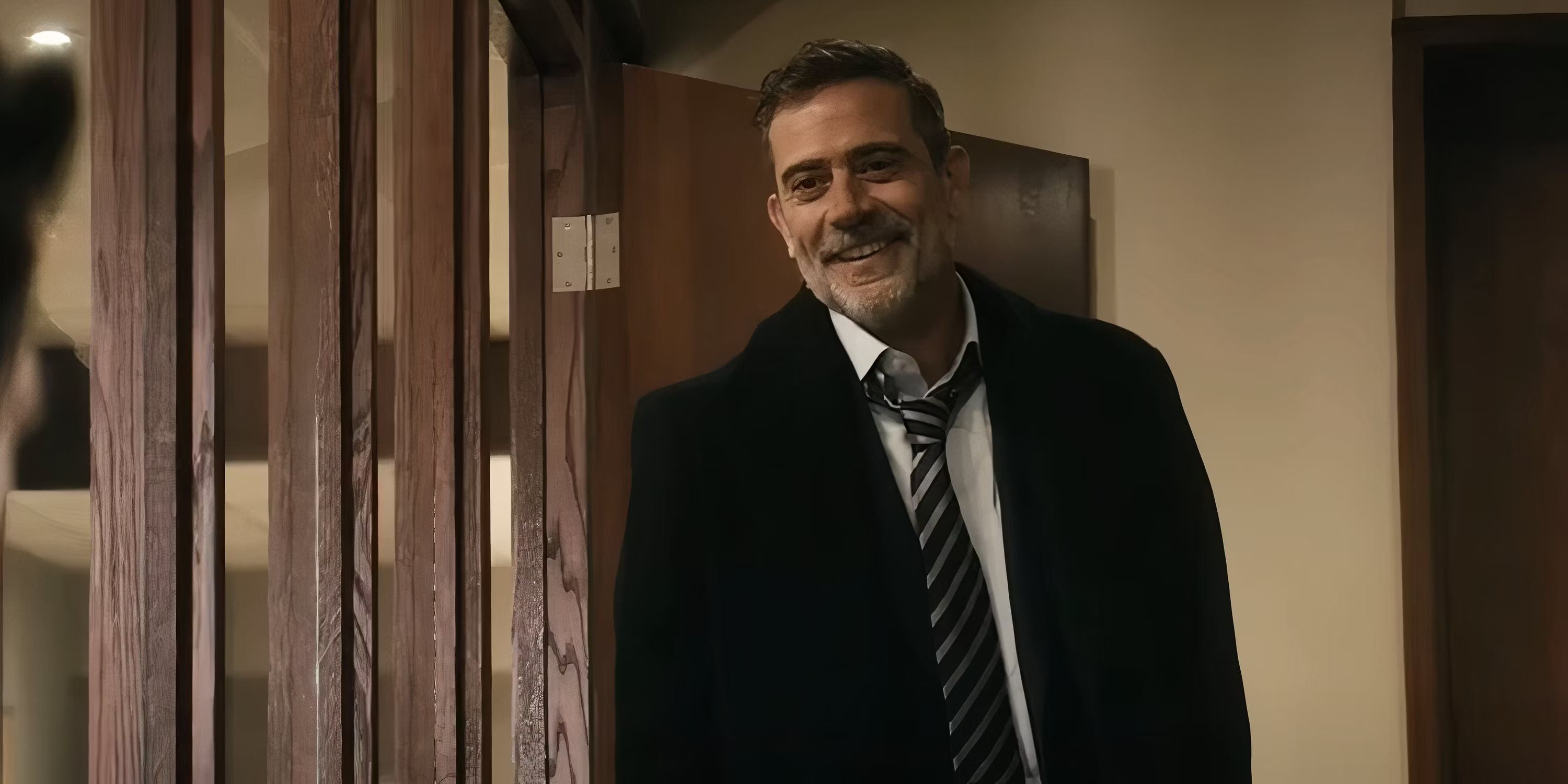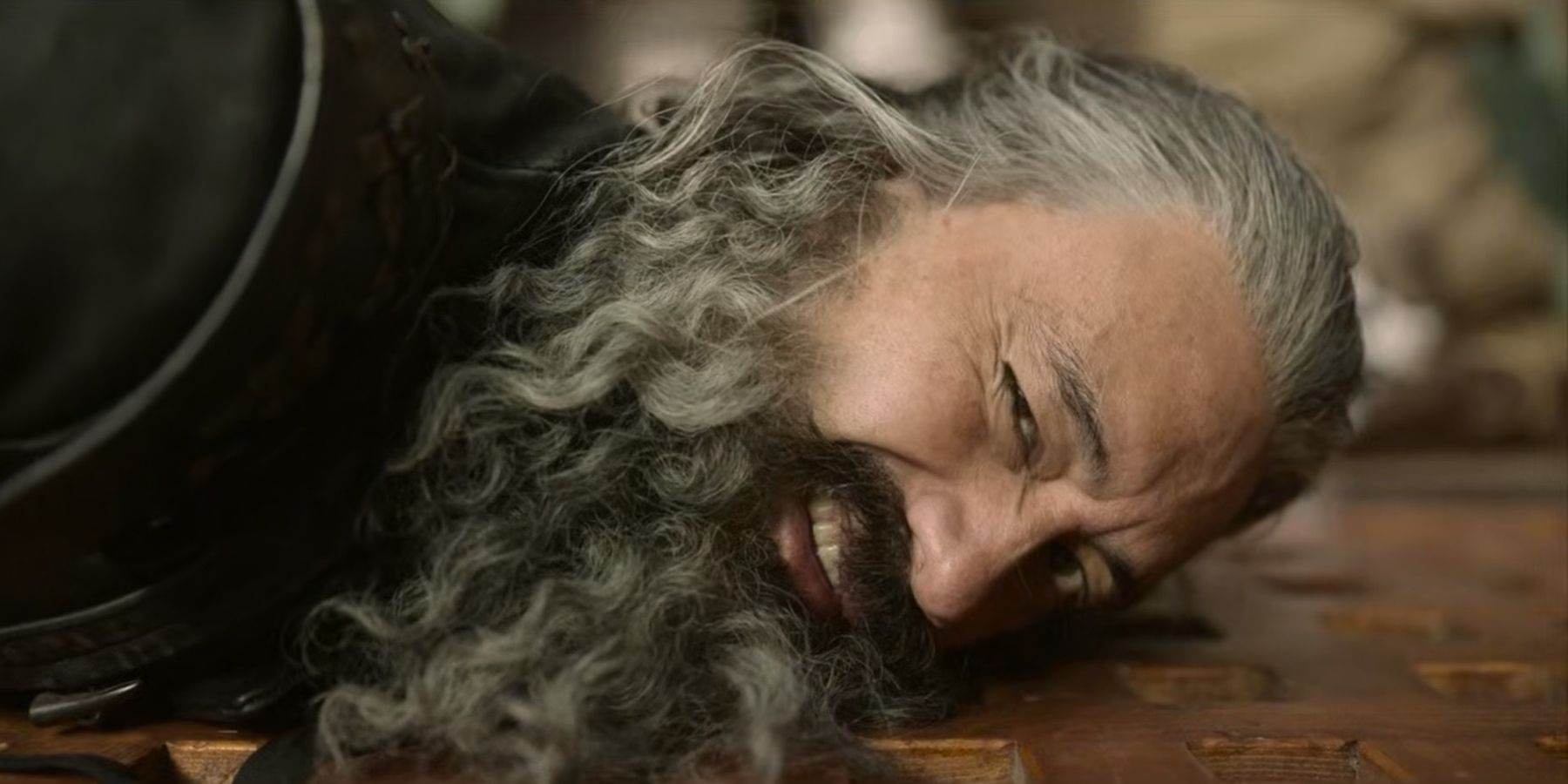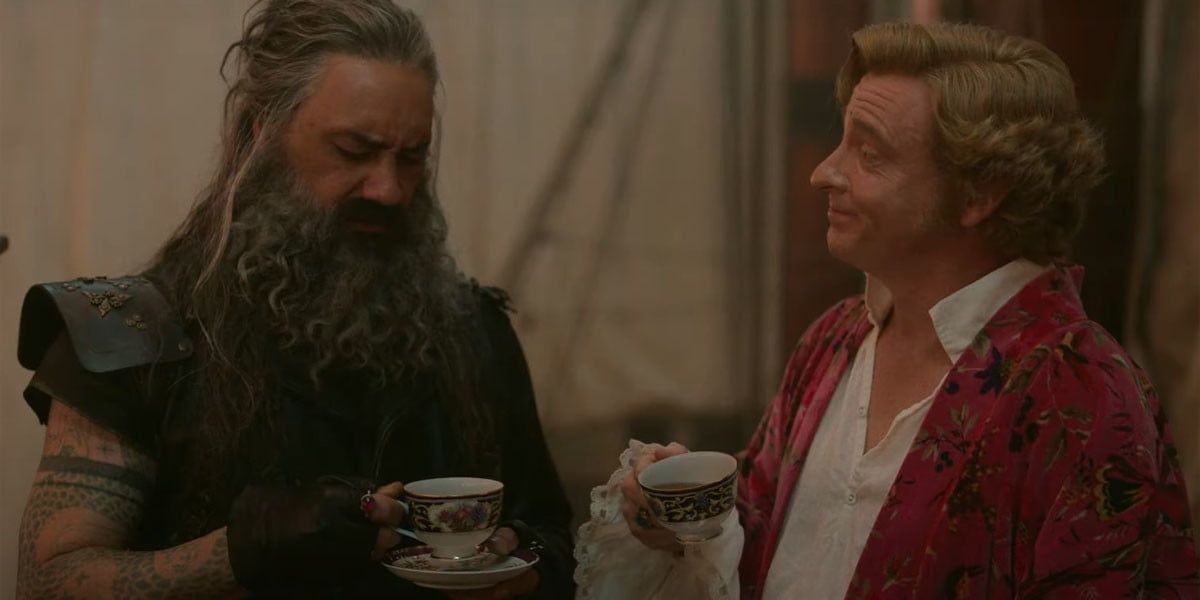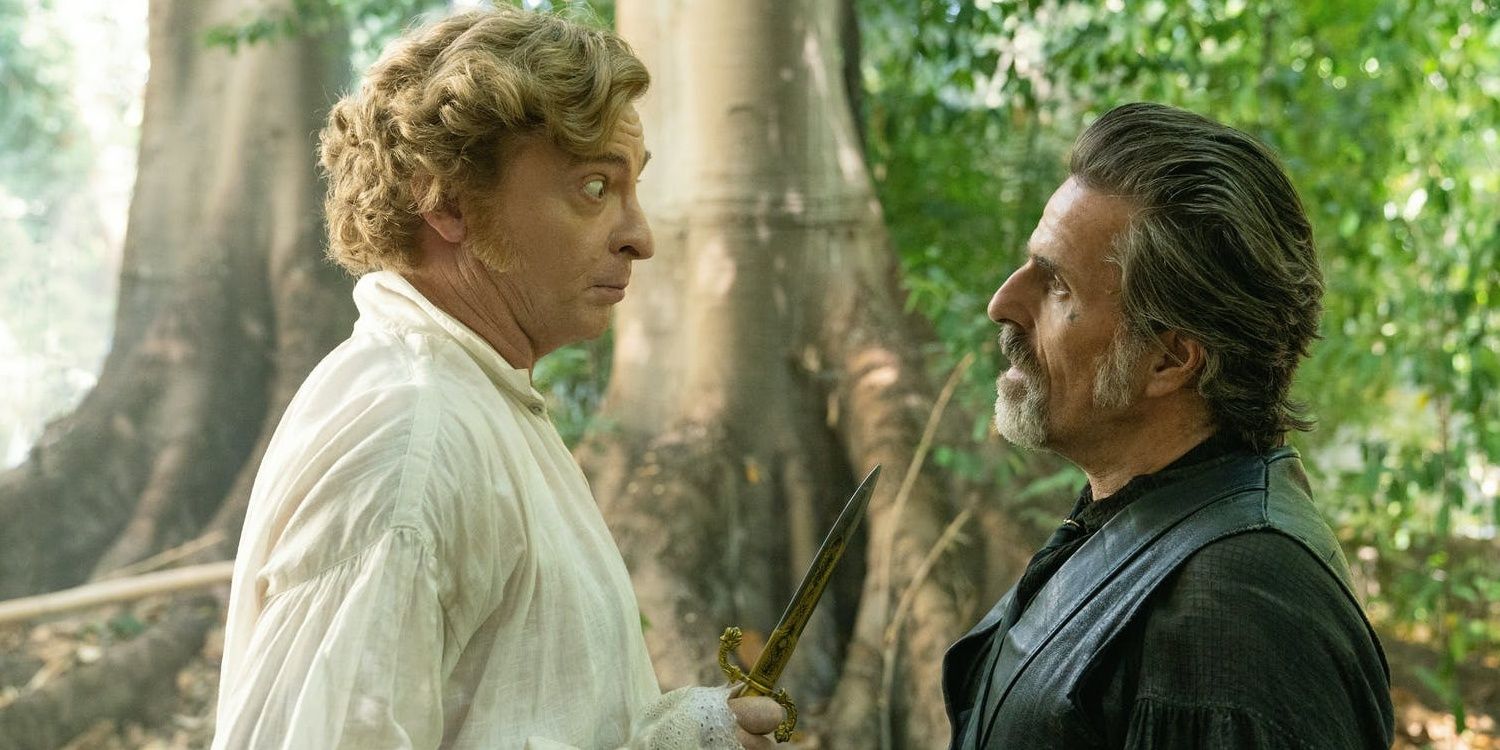In an age of queerbaiting and carefully edited-out representation, Our Flag Means Death is a bold breath of fresh air. With its frank and sincere same-sex romances, multiple healthy relationships, and characters beyond the gender binary, the show's narrative addresses things that almost never make it to the screen.
Representation is a difficult subject at times. Often, even when examples do break new ground, they can do so in a sloppy or irresponsible way that only hurts the cause. Our Flag Means Death is miles in the other direction, creating an immediate favorite in its community by ignoring much of what makes the medium difficult.
Looking back at the first season of David Jenkins' outstanding pirate comedy, one of the more impressive elements of its narrative is its pacing. The first few episodes are straightforward comedies, letting the audience get to know the characters before the driving force kicks in. By episode four, that driving force is aboard The Revenge, excitedly introducing himself as Ed "Blackbeard" Teach. The relationship between Ed and Stede builds slowly and naturally, and it manages to feel fragile from start to finish. The constant threat to both men's lives, the risk of being captured by the Navy, and the challenging emotional work between the two feel like they could ruin everything at any time. The one thing that feels like it's never a problem for Ed and Stede is the judgment of others, and that feels slightly strange in stories about a same-sex romance.
The way Jenkins and his crew see fit to handle homophobia, discrimination, or prejudice is largely to leave it out entirely. Ed and Stede's relationship isn't challenged because they're both men, but because they're the two most different men on Earth. The same goes for Black Pete and Lucius, a same-sex relationship with a polyamorous edge. Jim's case is perhaps even more interesting. When it's revealed that their original appearance is a disguise, the rest of the crew prods Jim for information. It looks like the standard Mulan arrangement at first, but once Jim sets the rest of the crew straight, everyone is more than happy to use the proper terminology. Even Jim's deeply religious caretaker gets corrected once and uses the proper pronouns from that moment forward. It's not a ray of sunshine — terrible stuff happens all the time — but discrimination on the basis of sexuality or gender identity simply isn't an issue in Our Flag Means Death. And that's part of what makes it brilliant.
Historically, pirates weren't the straightest bunch, and same-sex relationships were far from taboo on the open sea. European sailors had a makeshift civil union arrangement called matelotage, after the French word for sailor. Reports vary as to the actual content of a matelotage relationship; it would likely have encompassed a variety of types of partnership between men. Some were likely bonded by circumstance and needed a form of insurance, while others might have aired closer to watching each other's back in hectic situations. Many historians to this day maintain that matelotage was a way for gay men to marry which would've been unacceptable, and often criminally prosecuted, on dry land. Homosexuality was common amongst pirates, so it's arguably more accurate to depict them as accepting. While the show is a million miles from documentary and clearly has its sights set on period comedy, removing discrimination is one of the most intelligent parts of the show's writing.
Some might argue that there is at least one source of homophobia in the series: the deceptively simple and excellently realized Izzy Hands. Dizzy Izzy is one of the most interesting characters in the series. Blackbeard's first mate may seem homophobic at first glance, but closer inspection reveals that he hates Stede Bonnet for reasons entirely unrelated to his sexuality. In addition, Hands' feelings towards Blackbeard trend closer to unrequited love than disgust at who he is. Izzy is a hateful person — he hates Stede, and he hates the version of Ed that Stede brings out. He hates Lucius and Black Pete because they don't fear him or follow his orders. Most have come around to believing that he's a closeted gay man, overcompensating for his unrequited love of his captain with a bulwark of toxic masculinity. He can be cruel, hateful, and often despicable, but he isn't a bigot, and the core of humanity makes him who he is. This allows Izzy to remain likable, a fun fictional villain, while homophobia would be far too real a monster.
Our Flag Means Death is brilliant both for what it puts on screen and what it leaves out. Adding in discrimination, historically accurate or not, only detracts from the joy of a story that feels grounded and absurd at once. Like a lazy fantasy story might lean on tropes of real-world racism, many stories about non-straight, non-cis people might build their narrative around discrimination for easy drama. Our Flag Means Death chooses instead to build its drama around immaculate character writing, flawless comedic timing, and some of the strongest oddball humor in modern TV.

